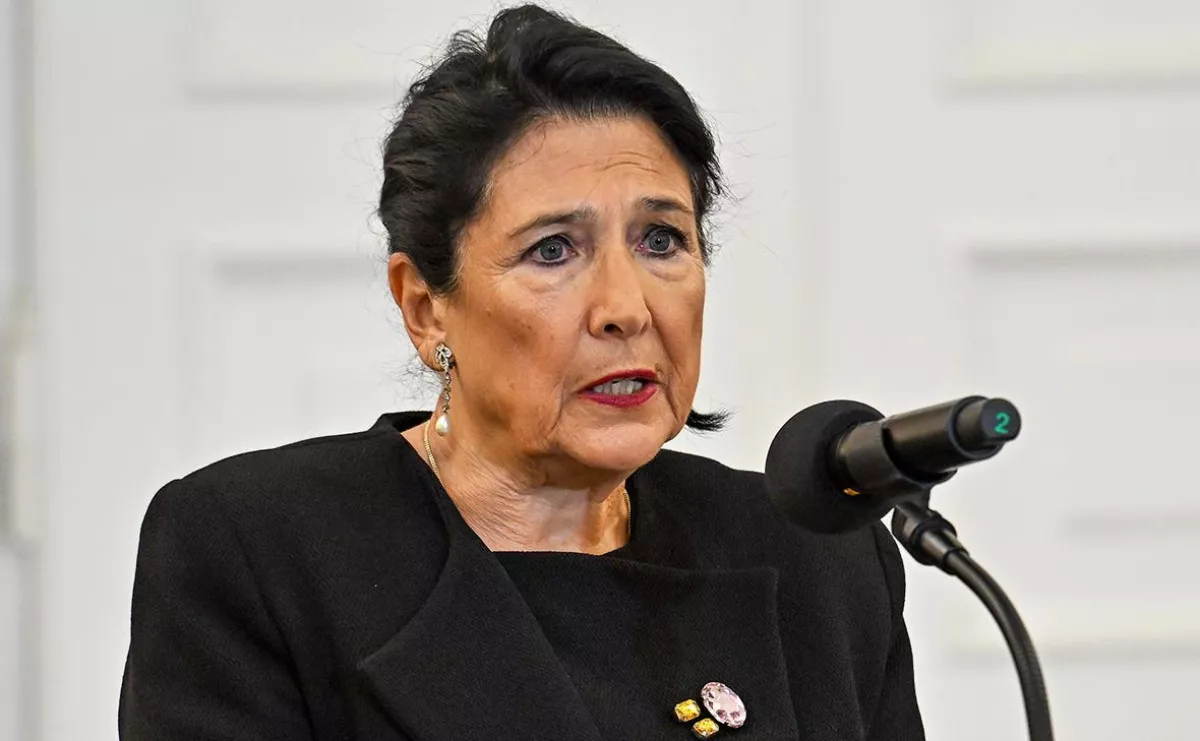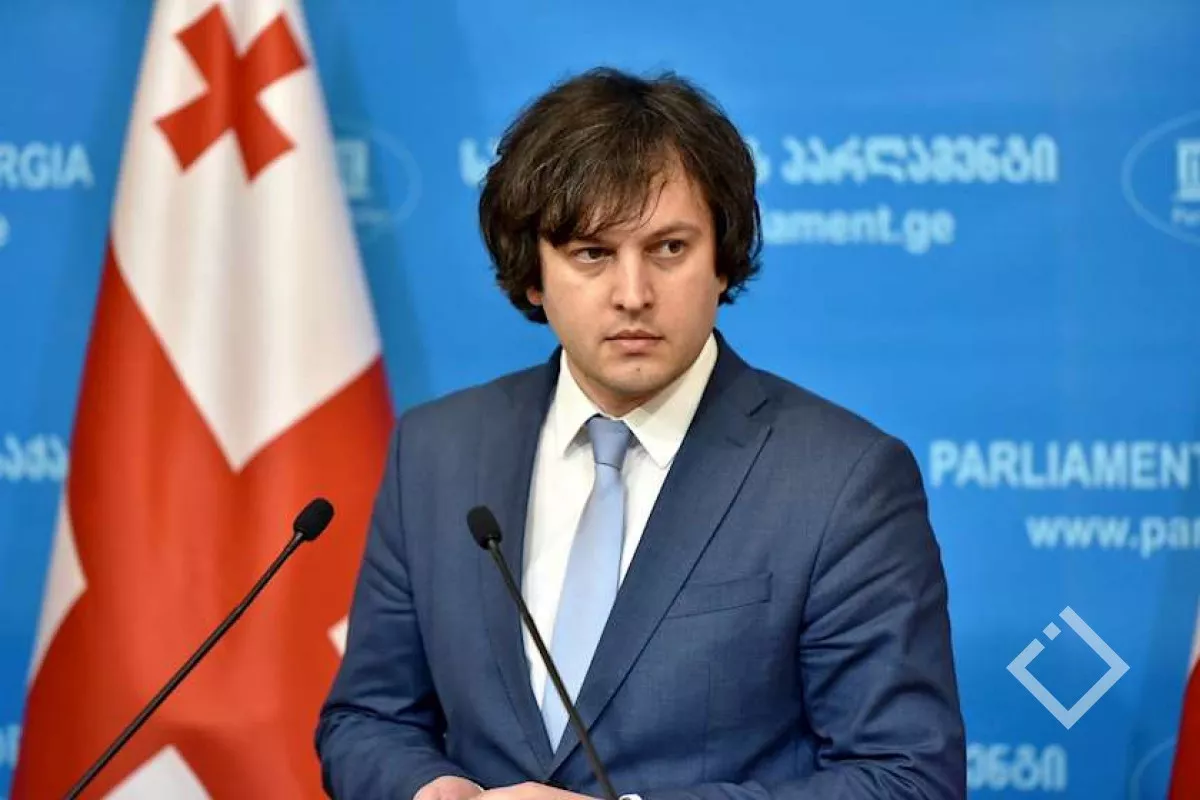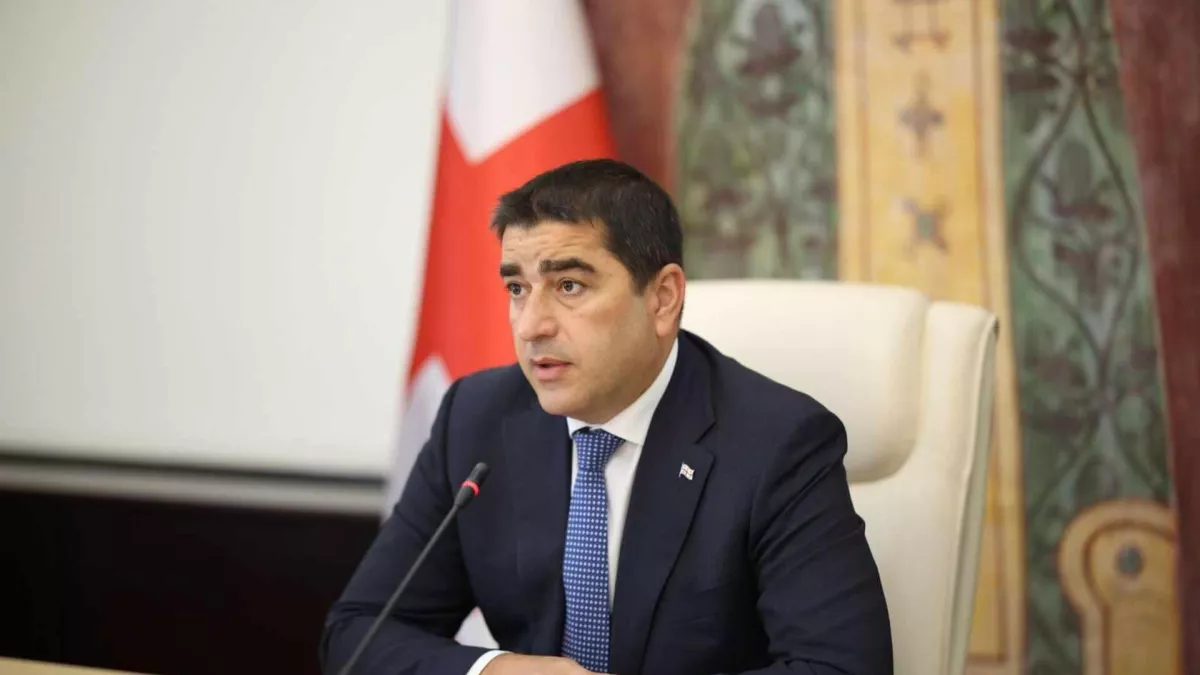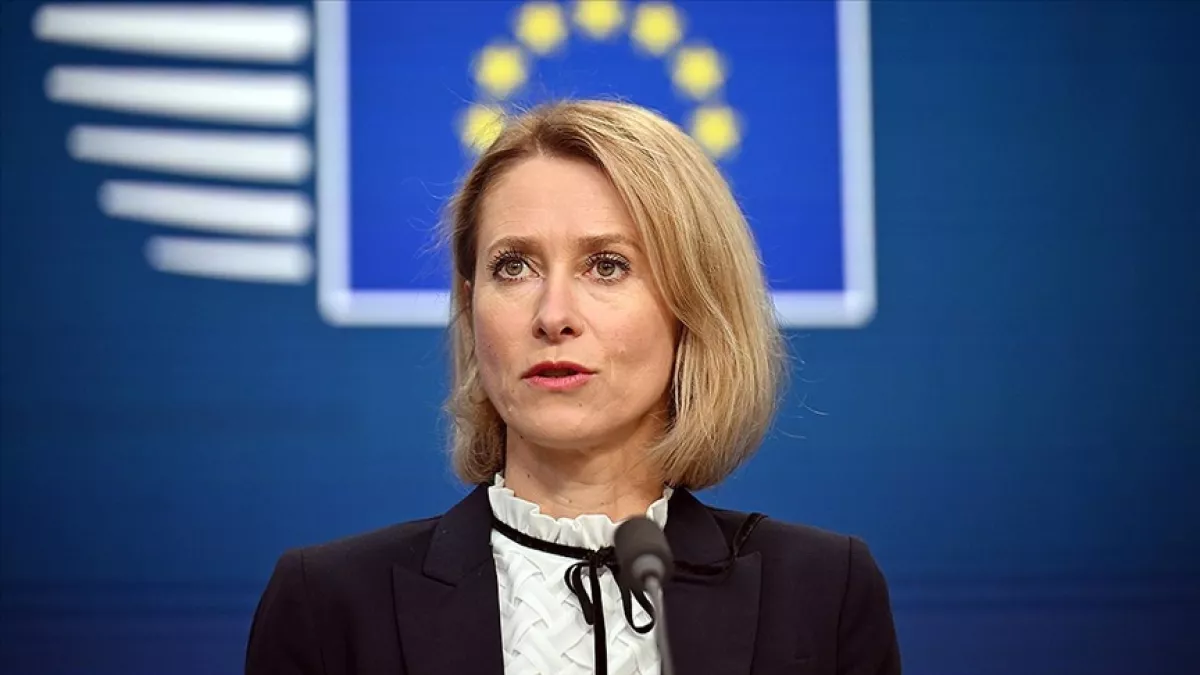EU's double standards in South Caucasus Yerevan in favour, Tbilisi in disgrace
Relations between the European Union and Georgia continue to deteriorate, while the country’s "pro-European" political forces are rapidly becoming marginalised, losing public support, and remaining entirely dependent on EU funding. The limited domestic backing for the pro-Western opposition was clearly demonstrated by the "Rise Up, Georgia!" rally, held on the evening of Sunday, 29 June 2025, in front of the parliament building in Tbilisi.

The day before, former President Salome Zourabichvili, in an almost hysterical tone, called on supporters of the "European choice" to attend the event. However, so few people turned up that camera operators struggled to find angles that would make the gathering appear as a "mass protest." Even in the most “favourable” shot, only a small group of opposition activists could be seen, barely filling a narrow section of Rustaveli Avenue.
From the stage, radical and extremist calls were made for the forcible overthrow of the current government by representatives of the pro-Western opposition who are still at liberty. Salome Zourabichvili herself also addressed the crowd, “congratulating” them on seven months of “continuous protest,” expressing solidarity with imprisoned opposition leaders, and calling for unity.

The very next day, on 30 June 2025, Prime Minister Irakli Kobakhidze, commenting on the rally, highlighted the opposition’s weakness and directly accused the European Union of funding “revolutionary processes” in Georgia.
“Everyone has once again seen how dire the situation is for the radical opposition. Four parties, 40 NGOs, funding from the European bureaucracy, the Deep State — they were all involved, yet only 2,000 people showed up to the protest,” the head of government stated.
He emphasised that the very fact of European funds being used to support movements openly calling for violence and the forcible overthrow of the government was deeply concerning.
“That NGOs funded by the European Union organise rallies with 2,000 people calling for regime change paints a very grim picture. This not only undermines trust in the European bureaucracy but in the EU itself,” Kobakhidze said.
According to him, it is clear to everyone how the Deep State uses EU funding to incite revolutionary activity in Georgia.
“Fortunately, these efforts have no future. But the mere fact that the EU, through NGOs, is financing protests with calls for overthrowing the government negatively impacts its reputation in our country. It’s no surprise that trust in the EU has dropped from 80% to 50%. The European bureaucracy, controlled by the Deep State, is destroying the Georgian public’s trust in European institutions,” the Prime Minister concluded.

On 1 July 2025, the Speaker of the Georgian Parliament, Shalva Papuashvili, expressed himself even more harshly. He directly accused the EU of preparing a forceful scenario for a state coup.
“The European Union Embassy must immediately explain how it happens that, using the money of EU citizens, calls for the overthrow of the government, for armed actions, and for general punishment are being made in Georgia,” he said.
Papuashvili emphasised the urgent need for clarification on whether the EU Embassy distances itself from such calls.
“The rally the day before yesterday was not just supported but organised by NGOs funded by the European Union. Among them are ‘Transparency International’ and ‘Sapari.’ The entire event was directed from the stage by Baia Pataraia — she decided who could speak and what statements were allowed. This is a person whose salary is paid from the EU budget. Therefore, the statements made at the rally were sanctioned by the organisers. When we hear calls for overthrowing the government and the involvement of fighters — I quote the speeches — these were voiced at an event organised with EU money. This is undoubtedly a catastrophe,” Papuashvili stated.
He emphasised that such funding violates the Constitution and laws of Georgia, as well as international law.
“Let me stress once again: the rally was organised by ‘Transparency International,’ ‘Sapari,’ and other NGOs receiving funds from EU sources. All statements were controlled by Baia Pataraia, and the participants themselves admit this. Thus, calls for the violent overthrow of the government were made on Rustaveli Avenue with European money. The EU Ambassador is obliged to provide an immediate explanation,” the Speaker of Parliament underscored.
Against this backdrop of sharply cooling relations between Tbilisi and Brussels, the European Union, on the contrary, actively demonstrates loyalty and support to Armenia. The EU turns a blind eye to political conflicts in Yerevan, human rights violations, and ongoing militarisation accompanied by revanchist rhetoric.

The EU’s Head of Diplomacy, Kaja Kallas, during her visit to Armenia, pledged at a joint press conference with Armenian Foreign Minister Ararat Mirzoyan to allocate €270 million to Yerevan under a resilience and economic growth programme for 2024–2027. According to her, this support includes assistance to businesses, promotion of reforms, and deepening ties between the EU and Armenia.
“The EU and Armenia have never been as close as we are now. Earlier this year, you adopted a law to launch the EU accession process. We very much welcome your readiness to deepen our partnership,” Kaja Kallas emphasised.
However, there are no real transport or political pathways for Armenia’s rapprochement with the EU without Georgia. In the foreseeable future — including without a full peaceful settlement with Azerbaijan and Türkiye and the opening of the Zangezur corridor — such ties remain unlikely. Moreover, even if the corridor were hypothetically opened, sovereign Türkiye is unlikely to follow Brussels’ directives blindly.
Thus, Armenia’s European integration becomes meaningless in conditions where control over Georgia is lost. This means that the pro-European forces in Yerevan today are more interested than ever in bringing their ideological and sometimes ethnic allies to power in Tbilisi — including by force, through “Maidans” and “revolutions.”
If such a “revolution” were to bring down the Georgian statehood, radical Armenian nationalists—who have traditionally held hostile attitudes toward Georgia—would gain a unique opportunity to break through to the sea via the destabilised territory of their neighbouring country, with the help of “European partners.”
There is also a scenario in which, alongside increased financial support for official Yerevan, the European Union might boost investments in the “revolution” in Georgia—possibly through Armenia itself. Moreover, Armenian militants and extremists—both Georgian citizens and those arriving from the neighbouring country—could be involved in the pro-Western opposition’s forceful protests, which already openly include calls for action.
All of this has the potential to create an extremely dangerous geopolitical situation not only for Georgia but for the entire South Caucasus, reigniting processes of border redrawing and disrupting the stable functioning of international transit routes, including the Middle Corridor.
By Vladimir Tskhvediani, Georgia, exclusively for Caliber.Az








